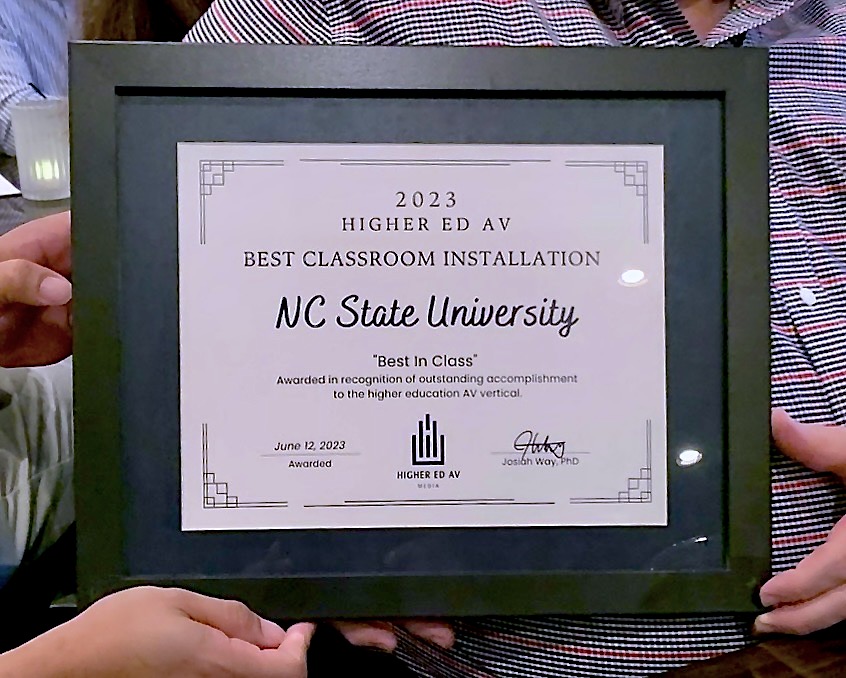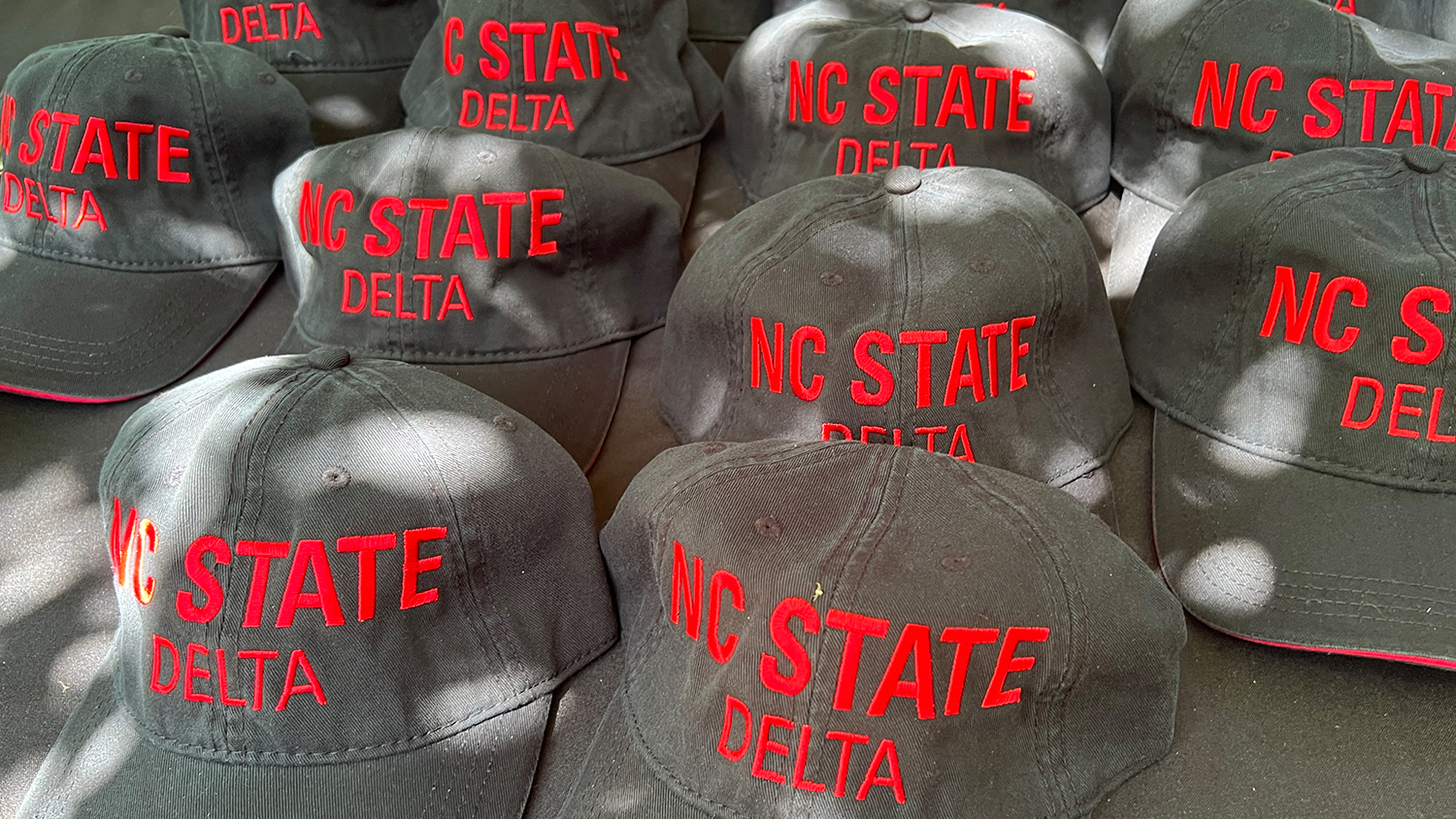Lecture Capture Technology Wins Higher Ed AV Award
DELTA Collaborates with Campus Partners to Create Dynamic Learning Environments

In the past, lecture capture technology at NC State was intended primarily as a tool for students in online and distance education classes who did not attend classes in person. Thus, the lecture capture technology was small, with only 50 classrooms capable of streaming and recording. Additionally, the professor decided whether to record lectures.
Student feedback, however, consistently requested more recorded courses. Both in-person and online students saw recordings as a valuable addition to their learning experience. Faculty members also expressed a desire to increase lecture capture, believing it positively impacted student performance.
“The idea behind classroom capture is not for it to replace coming to class, not to replace attending your courses, but instead to be another tool on your tool belt of learning technologies.”
Leisa Bolles, Director of Enterprise Digital Media
Meeting the Challenge
With this growing demand to provide more class recordings, a DELTA team, in a joint effort with campus partners, evaluated several processes and technologies to ensure that they found a solution that made the most sense. The best solution needed the following features:
- Easily integrated with the existing AV infrastructure and content management system (CMS), Panopto
- Ability to be operated remotely
- Easy to maintain without additional headcount
- Financially feasible
After much research, the team found one product that fit all these requirements: Epiphan Pearl systems.
The team worked together to find a solution that provided a consistent experience across campus by standardizing and eliminating the mix of various encoders across colleges and units. Ultimately, NC State chose Epiphan Pearl Mini hardware encoders as the primary workhorse for all the lecture capture setups. Each room includes a camera source, a computer source and audio from a ceiling-mounted microphone.
Winning the Award
In recognition of their work, the NC State team received an inaugural Higher Ed AV Award for Best in Class Classroom Installation Project Award. The Higher Ed AV Award is an industry-specific honors ceremony for higher education audio visual (AV) professionals who are dedicated to honoring the people, projects and products working in higher education.

The Higher Ed AV Award recognized four years of a successful project that also garnered the team the NC State 2020 Extraordinary Team Impact Award, which acknowledges a team that facilitated, promoted or advanced the university mission, vision and values through its collaborative efforts.
Engaging Students
Data shows that students who lobbied for an increase in classroom capture are taking advantage of this scaled-up resource. In the first two semesters with the expanded capture technology, recorded lectures accumulated over four million views and now total over seven million in the first two academic years. Professors note that students also rewatch lectures to prepare for assignments and exams. Additionally, students ask clarifying questions about the material ahead of important evaluations.
This resource enhances learning for all NC State students. It provides additional opportunities for students who can come to class in person, provides a safety net for those unable to attend in person, establishes an important connector for online students, and creates a more accessible environment for students with disabilities.
Vice Provost for DELTA Donna Petherbridge, who originally nominated the team for the award, agrees that the combined efforts of the group are benefitting NC State students.
“Lecture capture can help students clarify key points from lectures, review material for understanding, and assist in supporting and including students who are learning content in a non-native language or have other learning needs and challenges,” Petherbridge said. “I view this as another important way to help our students engage with difficult material, facilitating study and note taking beyond the walls of the classroom.”
- Categories:


